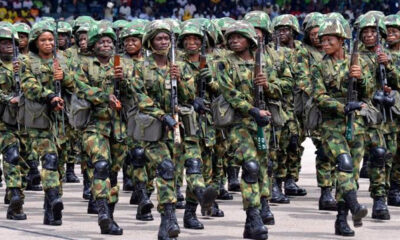Business
Nigeria gets $3bn as IMF lifts member nations with $650bn

The International Monetary Fund has announced $650bn special drawing rights (SDRs) for member countries to boost the liquidity, with Nigeria getting $3.35 billion.
Managing Director of the IMF, Kristalina Georgieva, disclosed this in a statement on Monday.
The SDR is an international reserve asset created by the United Nations specialised agency to supplement its member countries’ official reserves.
The value of the SDR is based on a basket of five currencies – the U.S. dollar, the euro, the Chinese renminbi, the Japanese yen, and the British pound sterling. They are units of account for the IMF, not a currency per se.
Georgieva said the SDRs would be distributed to countries in proportion to their quota shares in the IMF.
She said $275 billion would go to emerging and developing countries, with low-income countries receiving about $21 billion.
“The largest allocation of Special Drawing Rights (SDRs) in history—about $650 billion—comes into effect today. “The allocation is a significant shot in the arm for the world and, if used wisely, a unique opportunity to combat this unprecedented crisis,” the IMF said.
It also stated, “The SDR allocation will provide additional liquidity to the global economic system – supplementing countries’ foreign exchange reserves and reducing their reliance on more expensive domestic or external debt. Countries can use the space provided by the SDR allocation to support their economies and step up their fight against the crisis.
“The SDRs are being distributed to countries in proportion to their quota shares in the IMF. This means about $275 billion is going to emerging and developing countries, of which low-income countries will receive about US$21 billion – equivalent to as much as 6 percent of GDP in some cases.”
The IMF leader said countries should ensure that decisions on the use of the SDRs must be prudent and well-informed.
She further stated that the IMF would provide a framework for assessing the macroeconomic implications of the new allocation, its statistical treatment and governance, and how it might affect debt sustainability.
The bank would also provide regular updates on all SDR holdings, transactions, and trading – including a follow-up report on the use of SDRs in two years’ time.
“To magnify the benefits of this allocation, the IMF is encouraging voluntary channeling of some SDRs from countries with strong external positions to countries most in need,” the statement said.
It added, “Over the past 16 months, some members have already pledged to lend US$24bn, including US$15 billion from their existing SDRs, to the IMF’s Poverty Reduction and Growth Trust, which provides concessional loans to low-income countries. This is just a start, and the IMF will continue to work with our members to build on this effort.
“This SDR allocation is a critical component of the IMF’s broader effort to support countries through the pandemic, which includes: US$117 billion in new financing for 85 countries; debt service relief for 29 low-income countries; and policy advice and capacity development support to over 175 countries to help secure a strong and more sustainable recovery.”
The new SDR allocation is the highest in the history of the IMF.
In June, President of the African Development Bank (AfDB), Akinwumi Adesina, said G7 countries had also agreed to reallocate $100 billion in their IMF SDR to African states by October.
Business
CBN posts $23bn net FX reserve, strongest in three years

CBN posts $23bn net FX reserve, strongest in three years
The Central Bank of Nigeria (CBN) has achieved its strongest foreign exchange reserve position in over three years, posting an impressive $23.11 billion in net reserves at the end of 2024.
The development signals a robust recovery and enhanced financial stability for the country’s economy. It also reflects a substantial improvement in the country’s external liquidity, reduced short-term obligations, and renewed investor confidence.
According to the CBN, NFER (Net foreign exchange reserve) stood at $23.11 billion, a marked increase from $3.99 billion at year-end 2023, $8.19 billion in 2022, and $14.59 billion in 2021. NFER, which adjusts gross reserves to account for near-term liabilities such as FX swaps and forward contracts, is widely regarded as a more accurate indicator of the foreign exchange buffers available to meet immediate external obligations.
Gross external reserves also increased to $40.19 billion, compared to $33.22 billion at the close of 2023.
The increase in reserves reflects a combination of strategic measures undertaken by the CBN, including a deliberate and substantial reduction in short-term foreign exchange liabilities – notably swaps and forward obligations. The strengthening was also spurred by policy actions to rebuild confidence in the FX market and increase reserve buffers, along with recent improved foreign exchange inflows – particularly from non-oil sources.
READ ALSO:
- Police hunt for last suspect in LASU graduate killing
- Ebonyi governor orders arrest of six commissioners, LG chair over contract
- Saka’s stunning return powers Arsenal to victory over Fulham
The result is a stronger and more transparent reserves position that better equips Nigeria to withstand external shocks. The expansion occurred even as the CBN continued to reduce short-term liabilities, thereby improving the overall quality of the reserve position.
“This improvement in our net reserves is not accidental; it is the outcome of deliberate policy choices aimed at rebuilding confidence, reducing vulnerabilities, and laying the foundation for long-term stability,” Governor of the Central Bank of Nigeria, Olayemi Cardoso, commented. “We remain focused on sustaining this progress through transparency, discipline, and market-driven reforms.”
Reserves have continued to strengthen in 2025. While the first quarter figures reflected some seasonal and transitional adjustments, including significant interest payments on foreign-denominated debt, underlying fundamentals remain intact, and reserves are expected to continue improving over the second quarter of this year.
Going forward, the CBN anticipates a steady uptick in reserves, underpinned by improved oil production levels, and a more supporting export growth environment expected to boost non-oil FX earnings and diversify external inflows.
The CBN remains committed to prudent reserve management, transparent reporting, and macroeconomic policies that support a stable exchange rate, attract investment, and build long-term resilience.
CBN posts $23bn net FX reserve, strongest in three years
Business
Petrol: Dangote refinery resumes loading trucks after payment

Petrol: Dangote refinery resumes loading trucks after payment
Dangote Petroleum Refinery has resumed loading of the Premium Motor Spirit, PMS, also known as petrol on trucks for oil marketers.
With the suspension of Naira for crude programme, rising price of crude oil and foreign exchange issues, the 650,000 barrels per day, bpd refinery stopped loading of trucks, based on Naira.
While loading by ships on dollar basis continued, the $20 billion refinery requested oil marketers, having an arrangements with it to “top up” payment so they can be supplied petrol.
However, checks by Vanguard indicated that many companies, including MRS Oil & Gas, which complied, were being loaded at N880 per litre, yesterday.
A reliable industry source, who confirmed the development, said: “Loading by trucks has commenced for oil marketing companies, which have added more monies.”
Meanwhile, petrol prices have risen across the country, with new pump and depot prices reaching up to N960 per litre and N900 per litre, according to the latest price list, obtained from MRS Oil and Gas.
READ ALSO:
- Couple, 4 others die in Abuja-Lokoja Road crash
- NSCDC personnel die, policemen, soldier injured in Abia auto crash
- 2024 Hajj: Reps refer NAHCON to anti-graft agencies
The adjustments, which became effective from March 28, 2025, indicated higher prices across major cities, with Lagos having the lowest rates and northern states recording the highest.
In Lagos, petrol will sell for N930 per litre, while states in the South West, including Ogun, Oyo, Osun, Ekiti, Kwara, and Ondo, will pay N940 per litre.
Also, in the South South and South East regions, including Edo, Abia, Akwa Ibom, Bayelsa, Rivers, Cross River, and Enugu, the product would be sold at N960 per litre.
In Abuja, Kaduna, Benue, Kogi, Niger, Sokoto, Kebbi, and Nasarawa will pay N950 per litre, while Zamfara, Kano, Jos, Bauchi, Taraba, Adamawa, Borno, Katsina, Jigawa, Gombe, and Yobe will pay N960 per litre.
The naira-for-crude arrangement was originally designed to enhance domestic fuel supply, curb import costs, and stabilise pump prices.
Under the scheme, Dangote Refinery has received 48 million barrels of crude oil in naira since October 2024, with an overall supply of 84 million barrels since it began operations in 2023.
Meanwhile, in a report obtained from its website, the Dangote Petroleum Refinery stated that “The Refinery will meet 100% of the Nigerian requirement of all refined products and also have a surplus of each of these products for export.
“Dangote Petroleum Refinery is a multi-billion-dollar project that will create a market for $21 Billion per annum of Nigerian Crude. It is designed to process Nigerian crude with the ability to also process other crudes.”
Petrol: Dangote refinery resumes loading trucks after payment
Auto
CFAO subsidiary LOXEA unveils BYD electric vehicles in Nigeria
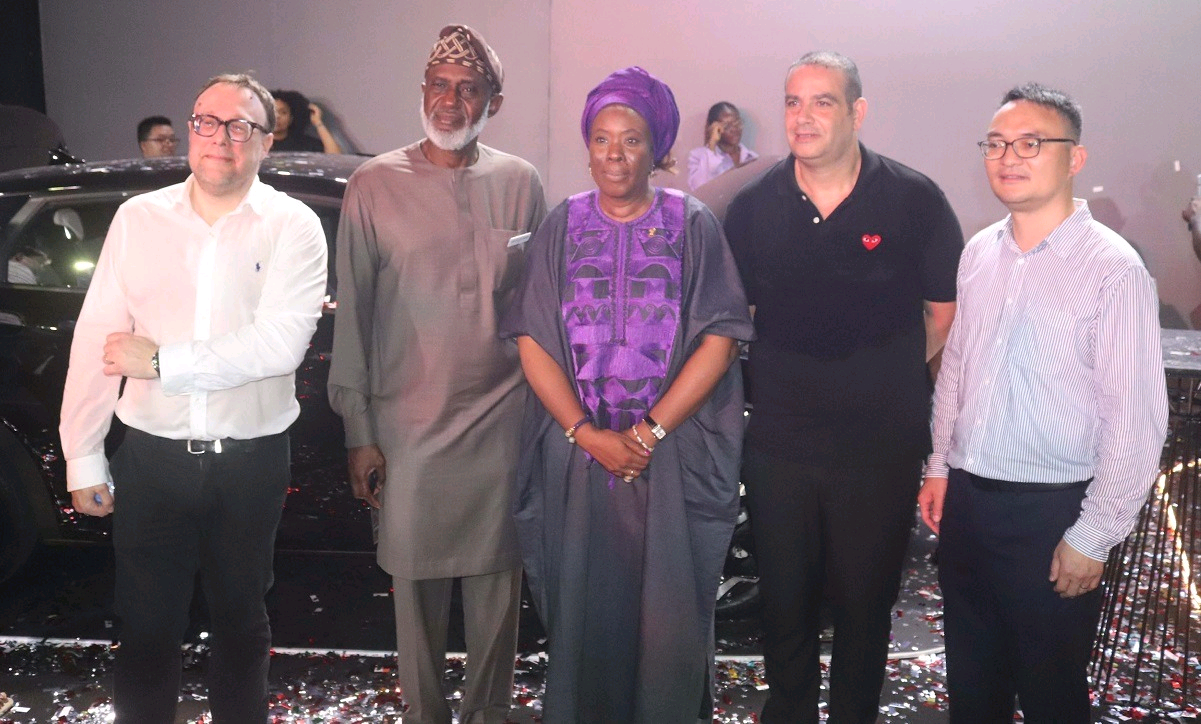
CFAO subsidiary LOXEA unveils BYD electric vehicles in Nigeria

A subsidiary of CFAO Mobility, LOXEA Nigeria, has introduced the BYD brand of electric vehicles to the Nigerian market.
LOXEA has thus become the pioneer in bringing the renowned electric vehicles (EVs) manufactured by BYD (Build Your Dreams) into the country.
BYD is a high-tech multinational company and the world leader in electric and plug-in hybrid vehicles.
“As a Fortune Global 500 enterprise, BYD relentlessly innovates to create a sustainable future,” said the automaker.
“In November 2024, BYD becomes the first company in the world to achieve the milestone with the roll-off of its 10-millionth NEV.
“BYD achieves 4.27 million new energy vehicle sales in 2024, claiming the global sales champion in the third consecutive year.”
Managing Director of LOXEA Nigeria, Mr. Mehdi Slimani, stated, “We are proud to distribute this type of electric vehicle and all its associated services.
“Our upcoming showroom in Victoria Island, Lagos will be a place dedicated to the discovery of BYD vehicles, combining modernity, comfort, and economy of use. “It is very important for CFAO Mobility in Nigeria to participate in this way in the country’s energy transition and support our customers who wish to make the switch to electric.”
Chief Executive Officer of CFAO Mobility, Marc Hirschfeld, spoke on the importance of this launch for both the company and the country, saying, “BYD is one of the world’s leading manufacturers of electric vehicles, with a level of innovation know-how that now matches the expectations of our markets in Africa.
“A whole new ecosystem has to be designed around mobility in African cities.
“This applies not only to individual and corporate customers, but also to stakeholders including urban public transport networks and government agencies.
LOXEA specialises in providing innovative mobility solutions across Africa.
With a commitment to sustainability and excellence, it delivers high-quality mobility services, from electric vehicle leasing to fleet management and infrastructure support.
LOXEA is a leading player in innovative mobility solutions in Africa, offering clients a range of 100% electric vehicles from BYD.
As a pioneer in the deployment of electric vehicle solutions across the continent, LOXEA is bringing to Nigeria a comprehensive suite of services associated with electric vehicles.
This includes the installation of electric charging stations, vehicle maintenance, repair services, and the provision of spare parts.
In addition to providing an inaugural charging station at the upcoming LOXEA Victoria Island showroom, the company is also offering an adaptable solution that allows customers to charge their EVs conveniently at home.
The company says more information on this can be obtained from its website: https://www.byd-nigeria.com/ .
-
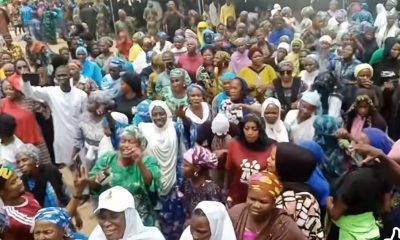
 metro20 hours ago
metro20 hours agoBREAKING: Senator Natasha defies restrictions, arrives homecoming rally by helicopter [VIDEO]
-

 metro2 days ago
metro2 days agoHow they murdered my Kano-bound passengers in Edo
-
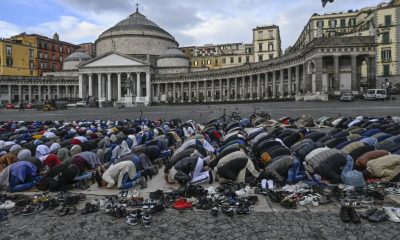
 International2 days ago
International2 days agoIn pictures: Eid celebrations around the world
-
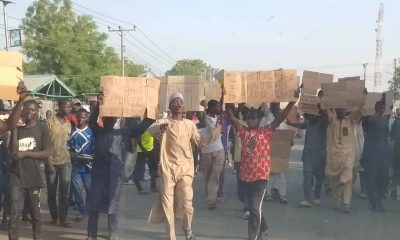
 metro1 day ago
metro1 day agoUromi: Edo residents flee towns over likely reprisal attack, arrest
-

 metro1 day ago
metro1 day agoBreaking: ‘Cancel your homecoming’ — Police tell Senator Natasha
-

 metro2 days ago
metro2 days ago‘I was offered N5bn bribe to impeach Fubara’
-

 metro2 days ago
metro2 days agoKano Gov Yusuf, Sanusi linked to Eid killings
-

 Sports2 days ago
Sports2 days agoNigerian boxer collapses, dies in ring during fight in Ghana









